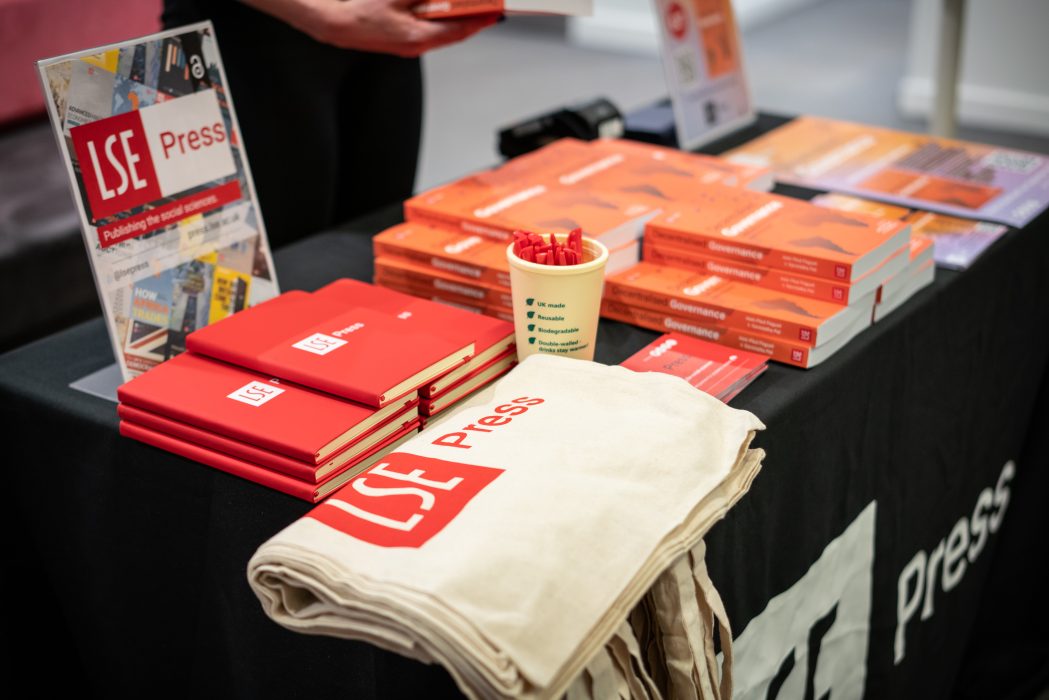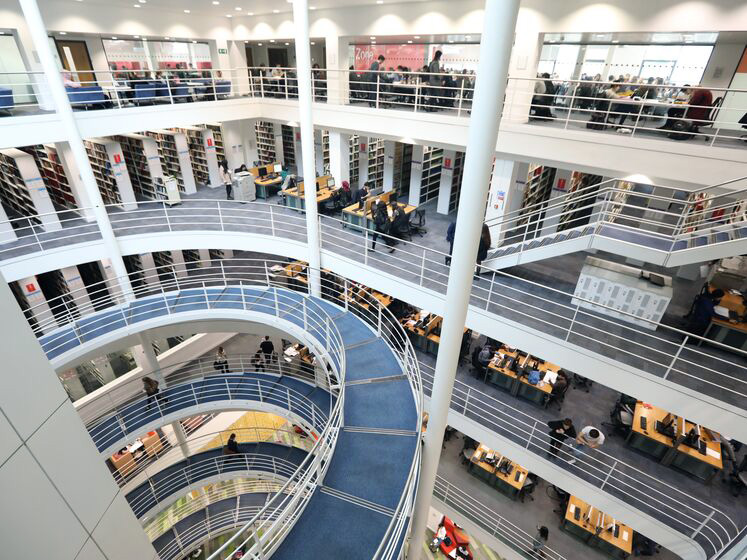In this blog, we spoke with LSE Library’s Director and Managing Director of LSE Press, Niamh Tumelty. Here, Niamh discusses the importance of the Open Science movement, alongside her plans for LSE Press, and the future of scholarly publishing.
Hello, Niamh. We’re very pleased to welcome you to your new post. Could you tell our readers about your work background and what your hopes are in your role as Managing Director for LSE Press in the coming months and years?
I am absolutely delighted that LSE has an Open Access press. It’s a critical part of the future for the role of libraries, the role of universities and the whole publishing ecosystem.
I’ve been in the UK for 14 years, working in academic libraries for most of that time. Before that I was in a specialist music Library and an advisory body for public libraries. I have moved sectors a little bit, but most of my career has been in university libraries and most of that in the University of Cambridge where I worked in academic liaison and more recently in open research.
Libraries are not just buildings that have books and study spaces, as critical as that is. Librarians can also be leaders and experts.
My background has given me a strong focus on the needs of the students and the researchers I’m working with. Whilst working at Cambridge, there was a very strong perception, particularly in the humanities and parts of the social sciences, that open research was very much driven by open science. I was very keen to further understand this logic, and so we set up a couple of working groups to dig into this idea – one looking at open research in the humanities, and the other looking at open qualitative research, unpacking where the challenges are with open science expectations for their discipline, and what would work better.
At LSE Library, I want to continue digging into Open Science and really trying to understand what open social science looks like when it is beneficial to the discipline.
As a sector, academic publishing is too dependent on making a profit. This doesn’t always act in line with the needs of researchers and can lead to decisions made for commercial reasons rather than reflecting the needs of the academy. Open Access university presses, such as LSE Press, help to create opportunities for researchers to work with a press that is aligned with what their values are, and to maximise access to their work without scrimping on quality. The output of LSE Press is high quality, peer-reviewed books and journal articles which can be used to promote social science research to the widest possible audience.
I’m really excited about the fact that LSE Press focuses on the social sciences specifically. There is a much more focused target audience which is helpful for building our brand and establishing ourselves as a leading publisher.
Our aim is to position ourselves as the place for social science researchers to go to in the early stages of thinking about places to publish their monograph/s. That’s not the case yet, but I’m confident it’s somewhere we could get to quickly. I’m keen to work with researchers and with the Press team to help them to achieve that.
I’m really pleased that LSE values the Library not simply as a support service, but as a partner in many areas, and as a leader in some areas. Libraries are not just buildings that have books and study spaces, as critical as that is. Librarians can also be leaders and experts. The fact that we have a Press here in the Library means we have more of that knowledge than you’d find in many other spaces. The institutions which don’t value their libraries are really missing out.

We’re also immensely lucky at LSE Library to hold our special collections. I love that there is such an archival focus on activism, for example in the Women’s Library, the Hall-Carpenter archives, and the papers from political organisations and grassroots organisations, including many of which that wouldn’t have agreed with each other at all!
The breadth of material here at LSE Library makes for a fascinating collection with rich research potentials. We have such a warm and welcoming community of librarians here who are really dedicated to what they’re doing, which shows in the quality of services that are available to staff and students in the university and also to the wider public.
Why is open access publishing is so critical, and what can you tell us about the new UKRI funding developments?
I believe open access publishing is critical because it gives free access to publicly funded research to anyone that wants to access it and/or build on it in through their own research.
Open access is the best way of sharing work – which researchers put so much time and energy in to – with the widest possible demographics. This is very much in line with the LSE’s 2030 Shape The World strategy and influencing what’s happening globally through leading the social sciences.
Publishing via closed access means their work can only be accessed by a tiny number of researchers in wealthier institutions and countries. Closed access also means you limit the capacity of your research to truly make a difference. It’s astounding that we ever got ourselves into a situation where it was so closed!

The new UKRI policy was the result of thorough consultations with research institutions, publishers and other stakeholder groups to review existing open access policies and recommend a new, single policy for UKRI research. Having funders thinking deeply about the practical, routes to sustainable open access and then setting expectations for funding, this lays the foundations for change.
Over the past twenty years, there has been a lot of publicity around why open access is such a good thing, which brought increasing numbers of researchers on board with the movement. However, things only really started to change when funders began making it a requirement to publish open access.
As a Library, we must do what we can to support researchers, and understanding the framework of open access policies and setting expectations really helps us to do that. I think many researchers are being asked to do too many things at once, between teaching, research and administrative commitments. Therefore, expecting them to also have their heads wrapped around all the policy details surrounding open access and how it affects their career, is a difficult balance. This is why the academic library plays such a key role in supporting researchers.
As Librarians, we have a huge responsibility to make sure that what we’re providing in our library collections are balanced and without bias so that they provide different perspectives. Speaking more widely, there’s a lot of discussion around decolonizing library collections and making sure that other perspectives are reflected where historically, the winner writes the history books. We need to make sure that we can access multiple perspectives to fully comprehend the past and formulate impactful research.

*
Niamh can be found on X @niamhtumelty and on LinkedIn, here. To stay informed on new releases from LSE Press, sign up to our newsletter, here.






Knowledgeful